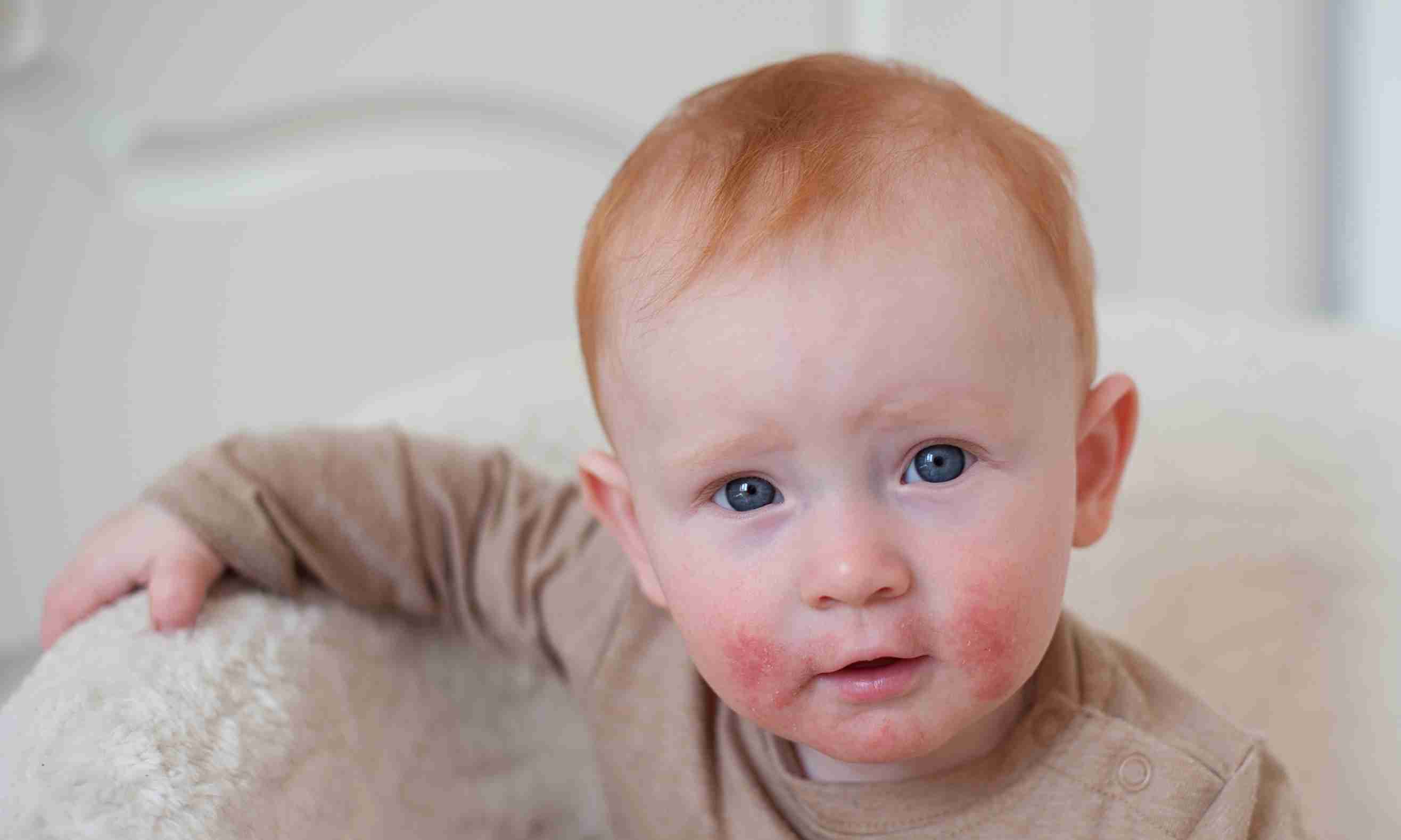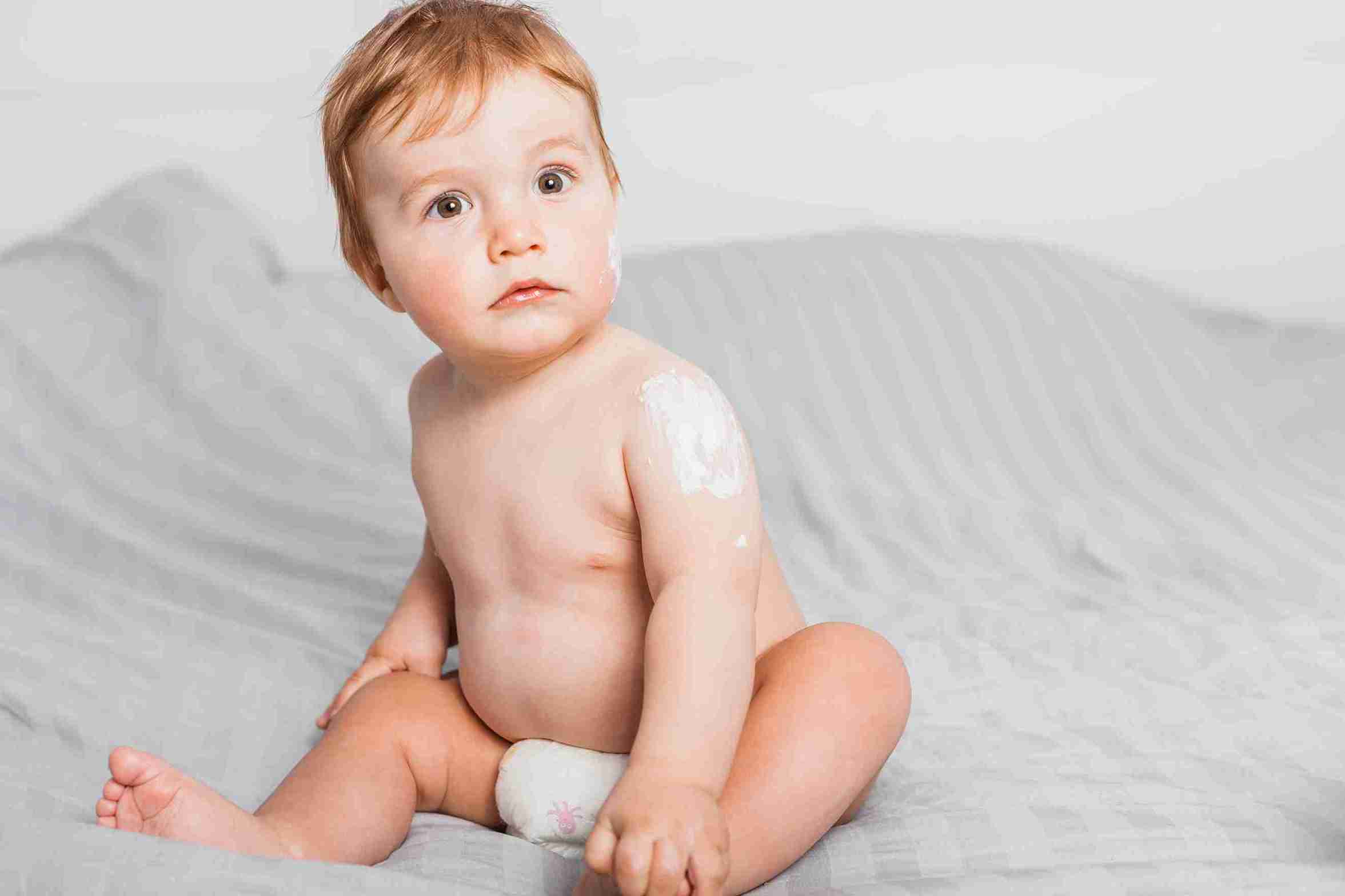
No matter how wonderful the experience of parenthood is, taking care of a baby with eczema adds an element of fear and emotional distress. Seeing your baby deal with dry, itchy, or swollen skin is troubling for any parent. Infant eczema, also known as atopic dermatitis, is a condition that typically occurs in babies, most frequently between the first six months of life. Although not contagious, infant eczema can greatly affect a baby’s comfort and sleep, which in turn can take a toll on the emotional well-being of parents
The silver lining is that with proper knowledge and regular care, baby eczema can be treated. From understanding the causes of eczema in babies to exploring effective infant eczema treatments, this article offers a compassionate and informative guide for parents seeking a solution for their child.

Infantile atopic dermatitis, also known as baby eczema, is a chronic inflammatory skin disease characterised by red, dry, and itchy patches on the skin. It's a very frequent skin disorder in infants and children.
● Cheeks and forehead
● Arms and legs
● Behind the knees or on the elbows
● Scalp and chest
In contrast to adult eczema, which usually occurs in more confined areas, infant eczema can affect larger or generalised areas. Flare-ups can also result in cracked or oozing skin, which, if scratched, may become infected. Early recognition of symptoms is the best way to initiate appropriate infant eczema treatment and avoid complications.
Although the cause is not entirely clear, several factors are known to contribute to baby eczema.
Infants with a family history of eczema, asthma, or hay fever are at a higher risk of developing eczema themselves. In the development of the skin's protective barrier, genetics play a significant role, and a mutation in the filaggrin gene may result in a defective skin barrier, allowing the skin to lose moisture and become susceptible to penetration by irritants.
Day-to-day situations can exacerbate or provoke eczema symptoms, including:
● Harsh soaps, detergents, or man-made fabrics
● Dusty, extremely cold, or dry air
● House dust mites, pollen, or animal dander
● Fragrant skincare products
These culprits have a tendency to break down the skin barrier and trigger an immune response that leads to inflammation, one of the major causes of infant eczema.
In other instances, allergens in the diet of a breastfeeding mother or the early exposure to particular solids can be contributing factors. Not always the direct causative factor, they often worsen symptoms.
Baby eczema is typically characterised by:
● Red, inflamed skin patches
● Dryness and flakiness
● Severe itching, affecting sleep
● Oozing or crusting in severe cases
● Thickened or leathery skin with chronic scratching
The severity can range from mild intermittent dryness to persistent itching and observable flare-ups. A symptom diary can help monitor triggers as well as the efficacy of child eczema treatment measures.

Successful infant eczema treatment involves a multi-faceted approach centred on skincare, environmental management and symptom alleviation.
Moisturising the baby's skin 2–3 times daily with a fragrance-free, rich emollient cream or ointment can help trap moisture and mend the skin barrier. Apply after bathing and as needed during the day.
● Use lukewarm water
● Limit baths to 5–10 minutes
● Avoid harsh soaps—use fragrance-free, mild cleansers
● Pat the skin dry gently and moisturise right away
Select soft, porous materials such as cotton. Wash clothing in unscented detergents and avoid using fabric softeners. Trim your baby's nails to reduce skin injury from scratching.
In severe or acute cases, a paediatrician may prescribe:
● Topical corticosteroids (low potency for infants)
● Non-steroidal anti-inflammatory creams
Use them only under medical direction as part of child eczema therapy.
Prevention of flare-ups is as critical as their treatment. Keep in mind the following advice:
● Use a humidifier in arid environments
● Dress your infant in layers to prevent overheating
● Pinpoint and destroy environmental or food irritants
● Maintain well-lubricated skin on your infant
For infants suspected of developing food-related eczema, an elimination diet can be recommended under paediatric allergist supervision.
Although mild eczema can usually be treated at home, it's worthwhile to get medical guidance if:
● The rash is getting worse or spreading
● Your infant has a fever or evidence of skin infection (pus, yellow crusts)
● Eczema disrupts feeding or sleep
● Treatment for infant eczema at home is not working
Your doctor might send you to a dermatologist or allergist for more testing or specialised treatment.
At Cloudnine Hospitals, we realise that baby eczema is not only a skin ailment but also impacts your child's sleep, mood, and overall quality of life. That's why our paediatricians and dermatologists collaborate closely with families to implement effective yet gentle child eczema treatment plans.
From thorough evaluations to personalised skin care regimens, Cloudnine presents whole-person care, emphasising comfort, long-term outcome and guidance for parents. Our empathetic experts are always at your side to address your questions and guide you through every step of your infant's skin journey.

Infant eczema is normal, but with the proper information and treatment, it need not interfere with the comfort of your child or your peace of mind. Identifying the reasons for infant eczema, adhering to regular child eczema treatment, and introducing considerate lifestyle changes can help you manage the condition effectively.
Don't forget, each baby's skin is unique, so what helps one child may not help another. Keep a close eye out, be patient and talk to your paediatrician when necessary.
Worried about your baby's skin? Make an appointment at Cloudnine today and let our paediatric specialists lead you to calm, soothed and happy skin.

Coconut oil is both anti-inflammatory and antimicrobial and may be soothing as a moisturiser for certain babies. But always patch test and have your paediatrician's approval.

Dry skin, irritants (soaps, clothing), allergens (dust mites, pets) and food allergies in some instances.

Breastmilk has been found in some studies to potentially have healing capabilities when used topically on mild eczema, but outcomes differ. It is not a replacement for medical treatments.

Most children outgrow eczema by the age of 4–5, but some will continue to experience symptoms into adolescence or adulthood. Proper child eczema care can control symptoms effectively.